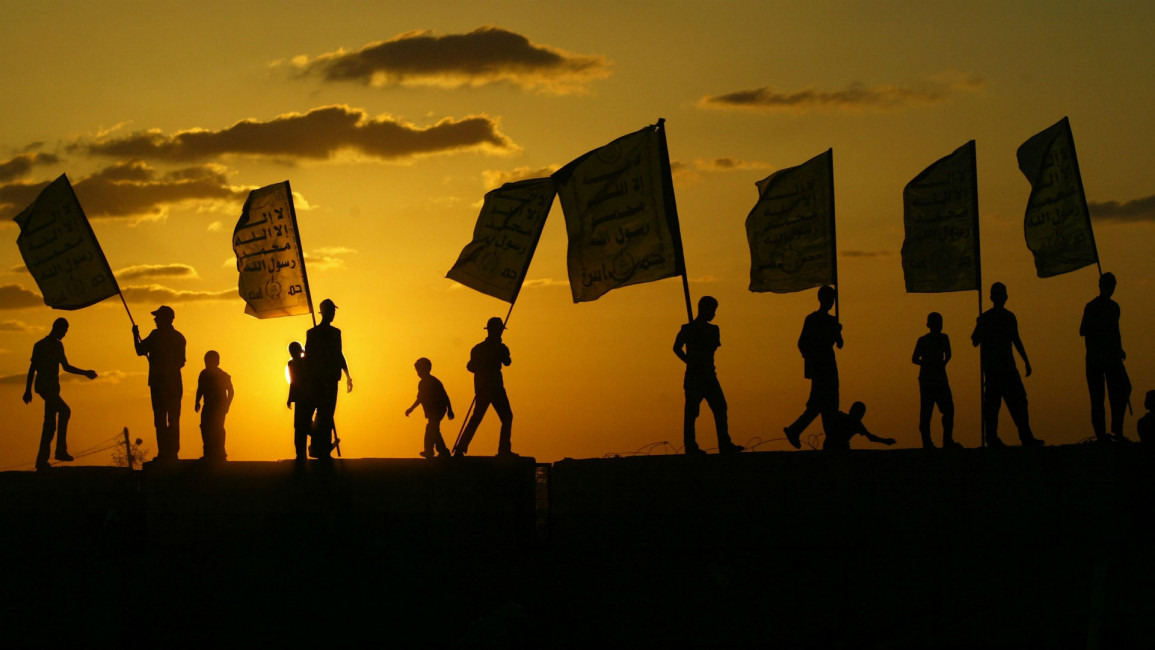
The battles of Hamas and Hizballah
Those who compare the battles of Hizballah with Israel in July 2006 and the Palestinian resistance in the Gaza Strip today are making a mistake. First, Hizballah has a strategic depth that extends to Lebanon, Syria and Iran. The Palestinian resistance in Gaza is fighting on a strip of land besieged on all sides by Israel and Egypt.
Secondly, Hizballah has a huge arsenal of weapons and extensive combat experience against Israel over a period of about 20 years, before its Syrian U-turn. The resistance in Gaza does not have this combat experience backed so overtly and forcefully from abroad.
Third, Israel continues to have designs in Lebanon, but they do not extend to occupation or settlement. The battle between Israel and the Palestinians has historically been, on the Israeli side, about control of the land and the expulsion of its inhabitants, and on the Palestinian side, hanging on to the land and liberating those parts of it that have been occupied.
But there are similarities. Israel's aim in both cases is to break the will of those resisting it, having failed to achieve a decisive victory in successive chapters of conflict. The Zionists did not finish occupying Palestine in 1948 or the West Bank and the Gaza Strip in 1967. Israel has not been able to set up a purely Jewish state, or to gain complete military and demographic control over the parts of Palestine occupied since the 1967 war.
Strategy
On a tactical level, the Palestinian resistance in Gaza has benefited from the lessons of Lebanon in July 2006 and subsequent confrontations with Israel. It has learned from experience that the invincibility of the Israeli army is more myth than reality, especially if there is the will and readiness to confront it.
The Gazan resistance in Gaza has benefited from Hizballah’s tactics in using rockets, even if Gaza’s rockets are not as sophisticated as Hizballah’s. Overall, it is not impossible that Hizballah combat experience has reached Hamas, either directly or indirectly.
There is also the element of timing. When Hizballah captured two Israeli soldiers, it knew Israel would not stand idly by. Maybe Hizballah leaders did not fully realise that Israel would wage such an intense bombing campaign in 2006, but they also knew that Israel would not just target a few select sites. Hizballah’s preparedness was one of the most notable elements of that conflict.
| |
Despite Israeli indifference to civilian casualties, fighting in heavily built-up areas bears similarities to fighting in rugged south Lebanon |
Similarly, the resistance in Gaza was on alert for this new round of war. No Israeli move came as a surprise. Despite Israeli indifference to civilian casualties, fighting in heavily built-up areas bears many similarities to fighting in the rugged areas in south Lebanon – at least when it comes to the difficulties faced by military ground machinery to advance.
Measuring minimal progress
The fact that this open confrontation between Israel’s massive military machine and the resistance in Gaza is entering its fourth week, without Israel making any major breakthroughs, is also similar to the difficulties Israeli forces faced in south Lebanon. There, Israel measured the advances of its forces by the metre. In Gaza now, it is measuring its advances in the Gaza Strip by the metre, and only after completely devastating any area into which it is advancing.
In 2006, Israel failed to hit Hizballah’s field or political command in a month of fierce bombing.
Similarly now, in the case of Gaza, Israel has failed to hit the leadership of Hamas or other Palestinian resistance forces, military or political. In previous rounds of fighting, Israel had more success in this, and it means that Hamas has been more successful this time round - at least in eliminating the army of collaborators who were roaming freely in the Gaza Strip.
Hamas’ leadership in the Gaza Strip has been able to absorb a devastating onslaught that sought to decimate their ranks and disrupt their network of communications. This has not happened, despite the ferocity of strikes - in which Israel has used almost every weapon at its disposal.
And there is one more similarity.
In 2006 as in 2014, Arab governments stood by silently. We understand why some governments turned their backs on Hizballah's battle with Israel in 2006. But how can we understand the silence of Arab governments over Israel's crimes against civilians in Gaza, when they have so long been so vocal in defence of Palestine?
Some will say it's because of Hamas’ relationship with the Muslim Brotherhood. But if it were Fatah on the ground instead of Hamas, the reaction of Arab governments would be no different – the autocrats of the Arab world just want to rid themselves permanently of the chronic headache that is Palestine.
This article is an edited translation from our Arabic edition.
Opinions expressed in this article remain those of the original author and do not necessarily reflect the opinions of Al Araby Al Jadeed, its editorial board or staff.




